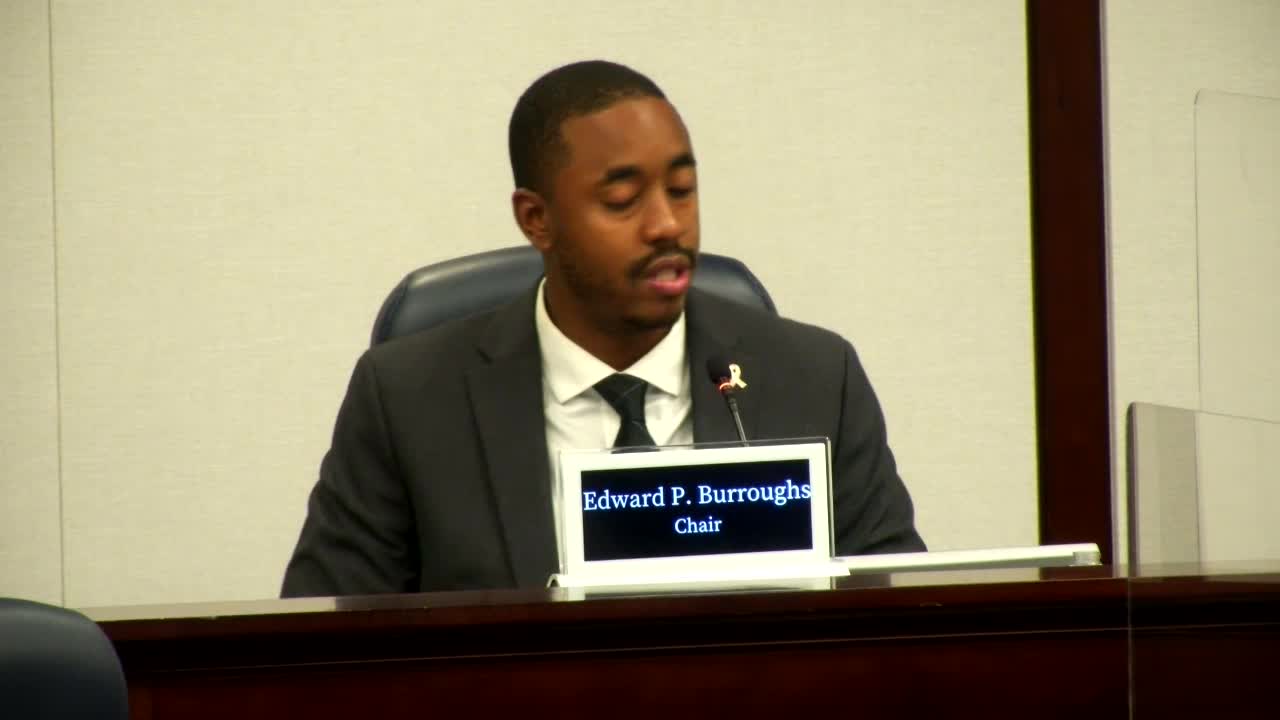Committee holds Legacy Wealth construction incentive bill after procurement raises certification and funding questions
Get AI-powered insights, summaries, and transcripts
Subscribe
Summary
Council member Hawkins’ Legacy Wealth Construction Incentive Program (CB 86) was held by the Committee of the Whole on Oct. 21, 2025, after the Office of Procurement raised concerns about implementation, certification of "locally owned and operated" businesses and where reimbursement funding would originate.
Prince George’s County Council’s Committee of the Whole held CB 86, the Legacy Wealth Construction Incentive Program, for further drafting and interagency coordination after a substantive committee discussion and comments from the Office of Procurement on Oct. 21, 2025.
Why it matters: CB 86 would reimburse up to 50% of building or grading permit fees for projects that direct significant expenditures to county‑based minority‑owned businesses or locally owned and operated businesses. Sponsors say the incentive is intended to expand economic opportunities, grow the local tax base and help build generational wealth for minority and locally owned businesses.
What happened in committee: The sponsor, Council Member Hawkins, outlined the bill’s goals and argued that dollars spent with locally owned and operated businesses “circulate approximately seven times before leaving the county,” creating local economic growth. Committee members pressed administration officials and procurement on key operational questions, particularly: - Which businesses qualify under the bill’s definitions (the transcript reflects differences between "county based" and "locally owned and operated"); - Whether procurement or DPIE should administer permit‑related responsibilities and application intake; and - Where county reimbursement funding would originate amid county budget shortfalls.
Office of Procurement comments: Procurement’s legislative representative read submitted comments, supporting the intent but raising operational and legal concerns. Procurement noted it does not certify "locally owned and operated" businesses (that is not an existing certification), does not manage permitting (DPIE does), and recommended either assigning permit duties to DPIE or creating a collaborative framework between DPIE and SD3 (Supplier Development and Diversity Division). Procurement also flagged staffing and software needs if it were assigned new duties.
Committee action and rationale: After discussion, the sponsor moved to hold CB 86 to allow revisions and further consultation with procurement and other administration offices; the motion to hold carried 9–0. Committee members emphasized support for the bill’s goals while urging that implementation pathways be clarified before the matter advances.
Next steps: Committee staff and the sponsor were instructed to work with procurement and other relevant agencies to (1) clarify definitions for eligibility and certification, (2) identify the appropriate administering agency or interagency process for permit‑related tasks, and (3) determine funding sources for reimbursements before returning the bill to committee.
Provenance (evidence spans): - Sponsor opening and justification: "Dollars spent with locally owned and operated businesses circulate approximately 7 times before leaving the county..." (Council Member Hawkins) (s=2331.59-e=2372.9849) - Procurement remarks on certification and implementation: "...we do not certify locally owned businesses... the Supplier Development and Diversity Division (SD3) does not manage or participate in the county's permitting process..." (Corey Jefferson, Office of Procurement) (s=2698.0398-e=2876.675) - Motion to hold: "Madam chair, we like to hold this and just just go back with my team and tighten it up a little bit..."; hold motion carried 9–0 (s=2890.33-e=2985.625)
Speakers recorded in the transcript: - Council Member Hawkins — Bill sponsor (Council Member). Quoted in committee record. - Corey Jefferson — Deputy Director/legislative representative, Office of Procurement (spoke to procurement concerns). - Chair Burrows — Committee Chair (presided over motion to hold). - Mr. Tutt — Staff (offered bill procedural notes).
Clarifying details extracted from the record: - Reimbursement rate proposed in bill: up to 50% of building or grading permit fees for qualifying projects (as described in the bill synopsis read into the record). - Procurement does not certify "locally owned and operated" businesses; DPIE manages permitting functions; SD3 maintains a diverse supplier database but does not process permits.
Proper names: Office of Procurement; Supplier Development and Diversity Division (SD3); Department of Permitting, Inspections and Enforcement (DPIE); Prince George's County.
Ending: The committee held CB 86 for redrafting and interagency consultation; sponsors and procurement agreed to reconvene on definitions, administrative responsibilities and funding before the bill returns to committee.
